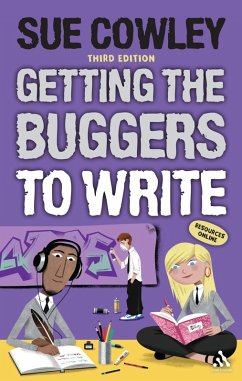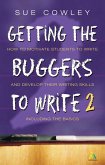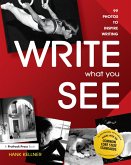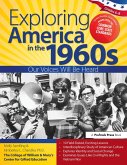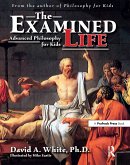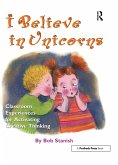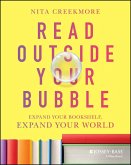16,95 €
16,95 €
inkl. MwSt.
Sofort per Download lieferbar

8 °P sammeln
16,95 €
Als Download kaufen

16,95 €
inkl. MwSt.
Sofort per Download lieferbar

8 °P sammeln
Jetzt verschenken
Alle Infos zum eBook verschenken
16,95 €
inkl. MwSt.
Sofort per Download lieferbar
Alle Infos zum eBook verschenken

8 °P sammeln
- Format: PDF
- Merkliste
- Auf die Merkliste
- Bewerten Bewerten
- Teilen
- Produkt teilen
- Produkterinnerung
- Produkterinnerung

Bitte loggen Sie sich zunächst in Ihr Kundenkonto ein oder registrieren Sie sich bei
bücher.de, um das eBook-Abo tolino select nutzen zu können.
Hier können Sie sich einloggen
Hier können Sie sich einloggen
Sie sind bereits eingeloggt. Klicken Sie auf 2. tolino select Abo, um fortzufahren.

Bitte loggen Sie sich zunächst in Ihr Kundenkonto ein oder registrieren Sie sich bei bücher.de, um das eBook-Abo tolino select nutzen zu können.
Part of the hit 'Getting...' series: A thoroughly practical guide for teachers, offering a whole host of ways to help all their students to improve their writing skills.
In this third edition, bestselling author Sue Cowley offers advice on improving skills and confidence, and getting students excited about writing - not just in literacy or English, but across the curriculum. This book is full of engaging and creative approaches for writers at all stages of confidence and competence: from children just starting to write, to experienced learners looking to perfect their own style. This…mehr
- Geräte: PC
- ohne Kopierschutz
- eBook Hilfe
Andere Kunden interessierten sich auch für
![Getting the Buggers to Write (eBook, PDF) Getting the Buggers to Write (eBook, PDF)]() Sue CowleyGetting the Buggers to Write (eBook, PDF)16,95 €
Sue CowleyGetting the Buggers to Write (eBook, PDF)16,95 €![Write What You See (eBook, PDF) Write What You See (eBook, PDF)]() Hank KellnerWrite What You See (eBook, PDF)19,95 €
Hank KellnerWrite What You See (eBook, PDF)19,95 €![Exploring America in the 1960s (eBook, PDF) Exploring America in the 1960s (eBook, PDF)]() Molly SandlingExploring America in the 1960s (eBook, PDF)31,95 €
Molly SandlingExploring America in the 1960s (eBook, PDF)31,95 €![Exploring America in the 1950s (eBook, PDF) Exploring America in the 1950s (eBook, PDF)]() Molly SandlingExploring America in the 1950s (eBook, PDF)31,95 €
Molly SandlingExploring America in the 1950s (eBook, PDF)31,95 €![The Examined Life (eBook, PDF) The Examined Life (eBook, PDF)]() David A. WhiteThe Examined Life (eBook, PDF)22,95 €
David A. WhiteThe Examined Life (eBook, PDF)22,95 €![I Believe in Unicorns (eBook, PDF) I Believe in Unicorns (eBook, PDF)]() Bob StanishI Believe in Unicorns (eBook, PDF)19,95 €
Bob StanishI Believe in Unicorns (eBook, PDF)19,95 €![Read Outside Your Bubble (eBook, PDF) Read Outside Your Bubble (eBook, PDF)]() Nita CreekmoreRead Outside Your Bubble (eBook, PDF)19,99 €
Nita CreekmoreRead Outside Your Bubble (eBook, PDF)19,99 €-
-
-
Part of the hit 'Getting...' series: A thoroughly practical guide for teachers, offering a whole host of ways to help all their students to improve their writing skills.
In this third edition, bestselling author Sue Cowley offers advice on improving skills and confidence, and getting students excited about writing - not just in literacy or English, but across the curriculum. This book is full of engaging and creative approaches for writers at all stages of confidence and competence: from children just starting to write, to experienced learners looking to perfect their own style. This edition includes new material on:
· writing in the digital age
· creative ideas for getting boys to write
· cross-curricular writing projects
On the companion website you'll find lots of useful extras, including advice about the teacher as writer - how you can use your writing skills beyond the school. This thoroughly practical guide will interest all educators who want to maximise the potential of every one of their students. It is an invaluable resource for teachers working at secondary and FE level, but equally a source of inspiration and practical advice for practitioners in primary schools.
In this third edition, bestselling author Sue Cowley offers advice on improving skills and confidence, and getting students excited about writing - not just in literacy or English, but across the curriculum. This book is full of engaging and creative approaches for writers at all stages of confidence and competence: from children just starting to write, to experienced learners looking to perfect their own style. This edition includes new material on:
· writing in the digital age
· creative ideas for getting boys to write
· cross-curricular writing projects
On the companion website you'll find lots of useful extras, including advice about the teacher as writer - how you can use your writing skills beyond the school. This thoroughly practical guide will interest all educators who want to maximise the potential of every one of their students. It is an invaluable resource for teachers working at secondary and FE level, but equally a source of inspiration and practical advice for practitioners in primary schools.
Produktdetails
- Produktdetails
- Verlag: Bloomsbury eBooks UK
- Seitenzahl: 264
- Erscheinungstermin: 13. Oktober 2011
- Englisch
- ISBN-13: 9781441143327
- Artikelnr.: 38302748
- Verlag: Bloomsbury eBooks UK
- Seitenzahl: 264
- Erscheinungstermin: 13. Oktober 2011
- Englisch
- ISBN-13: 9781441143327
- Artikelnr.: 38302748
- Herstellerkennzeichnung Die Herstellerinformationen sind derzeit nicht verfügbar.
Sue Cowley is an expert on behaviour management, and on creative approaches to teaching and learning. She has written numerous bestselling education and parenting books, which have been translated and published around the world. Sue has written for many teaching publications and was a regular presenter on Teachers TV. She has also been called to appear in front of the Education Select Committee, as an expert witness on behaviour in schools. She works internationally as a writer, trainer and presenter, as well as helping to run her local preschool.
Sue is a renowned INSET trainer, who has provided training for teaching and support staff around the UK and in Europe. She offers courses on a variety of topics including developing children's writing, creative thinking and behaviour management.
Sue is a renowned INSET trainer, who has provided training for teaching and support staff around the UK and in Europe. She offers courses on a variety of topics including developing children's writing, creative thinking and behaviour management.
Author's note, Third Edition \ Acknowledgements \ Introduction \ Part 1:
Starting Points \ 1. First Steps to Writing \ The Strands of Literacy \
Early Mark Making \ Early Writing Techniques \ Letter Activities \ From
Letters to Words \ From Words to Sentences \ Structure and Young Writers \
What Makes a Good Writer? \ 2. Building Firm Foundations \ Back to Basics \
Spelling \ Punctuation \ Grammar \ Some Thoughts on Paragraphing \
Handwriting \ Graphology \ Working with Words \ 3. The Writer's Toolkit \
Writing Processes \ Finding a Starting Point \ Selecting a Form \ Knowing
your Audience \ Thinking about Viewpoint, Style and Timing\ Brainstorming \
Researching \ Mind-mapping \ Selecting material \ Planning \ From First
Draft to Final Draft \ Presenting the Final Draft \ Reviewing and
Evaluating \ 4. The Motivated Writer \ Getting them Writing \ Keeping them
Writing \ Getting them Writing Properly \ A Reason to Write \ An Atmosphere
for Writing \ Warm-up Exercises \ Focus Exercises \ Putting the Pleasure
Back into Writing \ The Teacher as Writer \ Part 2: Write Across the
Curriculum \ 5. Writing in All the Subjects \Writing in Practical Subjects
\ Motivation Across the Curriculum \ All Together Now: Cross Curricular
Writing \ 6. Essay Writing \ Some Basic Tips \ Planning an Essay \
Answering the Question \ How to Quote \ The 'Four Step' Essay-Writing
Technique \ Introductions and Conclusions \ 7. Creative Writing \ Creating
a Fiction \ Starting Points for Creative Writing \ Finding Inspiration \
Using your Senses \ The Importance of Genre \ Writing Fiction \ Writing
Scripts \ Writing Poetry \ 8. Non-fiction Writing \ Note-taking and
Annotation \ Building your Writing \ Non-fiction Forms \ Technique and
Non-fiction Writing \ Types of Non-fiction Writing \ Recount (account) \
Report (non-chronological) \ Explanation \ Instructions (procedure) \
Persuasive Writing \ Discussion \ The Importance of Being an Expert \
Writing about Language \ Writing about Literature \ 9. Writing in the
Digital Age \ ICT and Writing \ Word Processing \ Writing and the
Interactive Whiteboard \ Writing and the Internet \ E-mail and Writing \
ICT: The Practicalities \ Part 3: Everyone's a Writer \ 10. Supporting the
Struggling Writer \ Key Strategies for the Teacher \ Key Strategies for the
Student \ Key Strategies for Differentiation \ Supporting Students with
ESL/EAL \ Writing and Behaviour \ 11. Extending the Gifted Writer \
Challenging Starters \ Structuring the Learning \ Finding a 'Voice' \ Essay
Writing with the Most Able \ 12. Boys and Writing \ Expectations of Boys'
Writing \ Motivating Boys to Write \ Inspirational Topics for Boys' Writing
\ Teaching Techniques to Inspire Boys \ Engaging Formats for Boys' Writing
\ Part 4: Writing it Right \ 13. Writing and Assessment \ Top Tips for
Assessment \ Marking Symbols \ Marking Methods \ Strategies for Assessment
\ Effective Questioning Techniques \ Approaching Exams \ 14. The Writing
Clinic \ Overwriting \ Dull or Under-Writing \ Lack of Punctuation \
Repetitive Writing \ Irrelevant Facts \ Listing \ 15. Celebrating Writing \
Displaying Writing \ Publishing Writing \ Book Weeks \ Author Days/Weeks \
Charity Activities \ Competitions \ Writers' Workshops \ 'Play in a Day' \
Trips \ Part 5: Resources for Writing \ Appendix 1: Text-messaging \
Appendix 2: Useful websites \ Appendix 3: Vocabulary \ Appendix 4: Marking
symbols \ Index
Starting Points \ 1. First Steps to Writing \ The Strands of Literacy \
Early Mark Making \ Early Writing Techniques \ Letter Activities \ From
Letters to Words \ From Words to Sentences \ Structure and Young Writers \
What Makes a Good Writer? \ 2. Building Firm Foundations \ Back to Basics \
Spelling \ Punctuation \ Grammar \ Some Thoughts on Paragraphing \
Handwriting \ Graphology \ Working with Words \ 3. The Writer's Toolkit \
Writing Processes \ Finding a Starting Point \ Selecting a Form \ Knowing
your Audience \ Thinking about Viewpoint, Style and Timing\ Brainstorming \
Researching \ Mind-mapping \ Selecting material \ Planning \ From First
Draft to Final Draft \ Presenting the Final Draft \ Reviewing and
Evaluating \ 4. The Motivated Writer \ Getting them Writing \ Keeping them
Writing \ Getting them Writing Properly \ A Reason to Write \ An Atmosphere
for Writing \ Warm-up Exercises \ Focus Exercises \ Putting the Pleasure
Back into Writing \ The Teacher as Writer \ Part 2: Write Across the
Curriculum \ 5. Writing in All the Subjects \Writing in Practical Subjects
\ Motivation Across the Curriculum \ All Together Now: Cross Curricular
Writing \ 6. Essay Writing \ Some Basic Tips \ Planning an Essay \
Answering the Question \ How to Quote \ The 'Four Step' Essay-Writing
Technique \ Introductions and Conclusions \ 7. Creative Writing \ Creating
a Fiction \ Starting Points for Creative Writing \ Finding Inspiration \
Using your Senses \ The Importance of Genre \ Writing Fiction \ Writing
Scripts \ Writing Poetry \ 8. Non-fiction Writing \ Note-taking and
Annotation \ Building your Writing \ Non-fiction Forms \ Technique and
Non-fiction Writing \ Types of Non-fiction Writing \ Recount (account) \
Report (non-chronological) \ Explanation \ Instructions (procedure) \
Persuasive Writing \ Discussion \ The Importance of Being an Expert \
Writing about Language \ Writing about Literature \ 9. Writing in the
Digital Age \ ICT and Writing \ Word Processing \ Writing and the
Interactive Whiteboard \ Writing and the Internet \ E-mail and Writing \
ICT: The Practicalities \ Part 3: Everyone's a Writer \ 10. Supporting the
Struggling Writer \ Key Strategies for the Teacher \ Key Strategies for the
Student \ Key Strategies for Differentiation \ Supporting Students with
ESL/EAL \ Writing and Behaviour \ 11. Extending the Gifted Writer \
Challenging Starters \ Structuring the Learning \ Finding a 'Voice' \ Essay
Writing with the Most Able \ 12. Boys and Writing \ Expectations of Boys'
Writing \ Motivating Boys to Write \ Inspirational Topics for Boys' Writing
\ Teaching Techniques to Inspire Boys \ Engaging Formats for Boys' Writing
\ Part 4: Writing it Right \ 13. Writing and Assessment \ Top Tips for
Assessment \ Marking Symbols \ Marking Methods \ Strategies for Assessment
\ Effective Questioning Techniques \ Approaching Exams \ 14. The Writing
Clinic \ Overwriting \ Dull or Under-Writing \ Lack of Punctuation \
Repetitive Writing \ Irrelevant Facts \ Listing \ 15. Celebrating Writing \
Displaying Writing \ Publishing Writing \ Book Weeks \ Author Days/Weeks \
Charity Activities \ Competitions \ Writers' Workshops \ 'Play in a Day' \
Trips \ Part 5: Resources for Writing \ Appendix 1: Text-messaging \
Appendix 2: Useful websites \ Appendix 3: Vocabulary \ Appendix 4: Marking
symbols \ Index
Author's note, Third Edition \ Acknowledgements \ Introduction \ Part 1:
Starting Points \ 1. First Steps to Writing \ The Strands of Literacy \
Early Mark Making \ Early Writing Techniques \ Letter Activities \ From
Letters to Words \ From Words to Sentences \ Structure and Young Writers \
What Makes a Good Writer? \ 2. Building Firm Foundations \ Back to Basics \
Spelling \ Punctuation \ Grammar \ Some Thoughts on Paragraphing \
Handwriting \ Graphology \ Working with Words \ 3. The Writer's Toolkit \
Writing Processes \ Finding a Starting Point \ Selecting a Form \ Knowing
your Audience \ Thinking about Viewpoint, Style and Timing\ Brainstorming \
Researching \ Mind-mapping \ Selecting material \ Planning \ From First
Draft to Final Draft \ Presenting the Final Draft \ Reviewing and
Evaluating \ 4. The Motivated Writer \ Getting them Writing \ Keeping them
Writing \ Getting them Writing Properly \ A Reason to Write \ An Atmosphere
for Writing \ Warm-up Exercises \ Focus Exercises \ Putting the Pleasure
Back into Writing \ The Teacher as Writer \ Part 2: Write Across the
Curriculum \ 5. Writing in All the Subjects \Writing in Practical Subjects
\ Motivation Across the Curriculum \ All Together Now: Cross Curricular
Writing \ 6. Essay Writing \ Some Basic Tips \ Planning an Essay \
Answering the Question \ How to Quote \ The 'Four Step' Essay-Writing
Technique \ Introductions and Conclusions \ 7. Creative Writing \ Creating
a Fiction \ Starting Points for Creative Writing \ Finding Inspiration \
Using your Senses \ The Importance of Genre \ Writing Fiction \ Writing
Scripts \ Writing Poetry \ 8. Non-fiction Writing \ Note-taking and
Annotation \ Building your Writing \ Non-fiction Forms \ Technique and
Non-fiction Writing \ Types of Non-fiction Writing \ Recount (account) \
Report (non-chronological) \ Explanation \ Instructions (procedure) \
Persuasive Writing \ Discussion \ The Importance of Being an Expert \
Writing about Language \ Writing about Literature \ 9. Writing in the
Digital Age \ ICT and Writing \ Word Processing \ Writing and the
Interactive Whiteboard \ Writing and the Internet \ E-mail and Writing \
ICT: The Practicalities \ Part 3: Everyone's a Writer \ 10. Supporting the
Struggling Writer \ Key Strategies for the Teacher \ Key Strategies for the
Student \ Key Strategies for Differentiation \ Supporting Students with
ESL/EAL \ Writing and Behaviour \ 11. Extending the Gifted Writer \
Challenging Starters \ Structuring the Learning \ Finding a 'Voice' \ Essay
Writing with the Most Able \ 12. Boys and Writing \ Expectations of Boys'
Writing \ Motivating Boys to Write \ Inspirational Topics for Boys' Writing
\ Teaching Techniques to Inspire Boys \ Engaging Formats for Boys' Writing
\ Part 4: Writing it Right \ 13. Writing and Assessment \ Top Tips for
Assessment \ Marking Symbols \ Marking Methods \ Strategies for Assessment
\ Effective Questioning Techniques \ Approaching Exams \ 14. The Writing
Clinic \ Overwriting \ Dull or Under-Writing \ Lack of Punctuation \
Repetitive Writing \ Irrelevant Facts \ Listing \ 15. Celebrating Writing \
Displaying Writing \ Publishing Writing \ Book Weeks \ Author Days/Weeks \
Charity Activities \ Competitions \ Writers' Workshops \ 'Play in a Day' \
Trips \ Part 5: Resources for Writing \ Appendix 1: Text-messaging \
Appendix 2: Useful websites \ Appendix 3: Vocabulary \ Appendix 4: Marking
symbols \ Index
Starting Points \ 1. First Steps to Writing \ The Strands of Literacy \
Early Mark Making \ Early Writing Techniques \ Letter Activities \ From
Letters to Words \ From Words to Sentences \ Structure and Young Writers \
What Makes a Good Writer? \ 2. Building Firm Foundations \ Back to Basics \
Spelling \ Punctuation \ Grammar \ Some Thoughts on Paragraphing \
Handwriting \ Graphology \ Working with Words \ 3. The Writer's Toolkit \
Writing Processes \ Finding a Starting Point \ Selecting a Form \ Knowing
your Audience \ Thinking about Viewpoint, Style and Timing\ Brainstorming \
Researching \ Mind-mapping \ Selecting material \ Planning \ From First
Draft to Final Draft \ Presenting the Final Draft \ Reviewing and
Evaluating \ 4. The Motivated Writer \ Getting them Writing \ Keeping them
Writing \ Getting them Writing Properly \ A Reason to Write \ An Atmosphere
for Writing \ Warm-up Exercises \ Focus Exercises \ Putting the Pleasure
Back into Writing \ The Teacher as Writer \ Part 2: Write Across the
Curriculum \ 5. Writing in All the Subjects \Writing in Practical Subjects
\ Motivation Across the Curriculum \ All Together Now: Cross Curricular
Writing \ 6. Essay Writing \ Some Basic Tips \ Planning an Essay \
Answering the Question \ How to Quote \ The 'Four Step' Essay-Writing
Technique \ Introductions and Conclusions \ 7. Creative Writing \ Creating
a Fiction \ Starting Points for Creative Writing \ Finding Inspiration \
Using your Senses \ The Importance of Genre \ Writing Fiction \ Writing
Scripts \ Writing Poetry \ 8. Non-fiction Writing \ Note-taking and
Annotation \ Building your Writing \ Non-fiction Forms \ Technique and
Non-fiction Writing \ Types of Non-fiction Writing \ Recount (account) \
Report (non-chronological) \ Explanation \ Instructions (procedure) \
Persuasive Writing \ Discussion \ The Importance of Being an Expert \
Writing about Language \ Writing about Literature \ 9. Writing in the
Digital Age \ ICT and Writing \ Word Processing \ Writing and the
Interactive Whiteboard \ Writing and the Internet \ E-mail and Writing \
ICT: The Practicalities \ Part 3: Everyone's a Writer \ 10. Supporting the
Struggling Writer \ Key Strategies for the Teacher \ Key Strategies for the
Student \ Key Strategies for Differentiation \ Supporting Students with
ESL/EAL \ Writing and Behaviour \ 11. Extending the Gifted Writer \
Challenging Starters \ Structuring the Learning \ Finding a 'Voice' \ Essay
Writing with the Most Able \ 12. Boys and Writing \ Expectations of Boys'
Writing \ Motivating Boys to Write \ Inspirational Topics for Boys' Writing
\ Teaching Techniques to Inspire Boys \ Engaging Formats for Boys' Writing
\ Part 4: Writing it Right \ 13. Writing and Assessment \ Top Tips for
Assessment \ Marking Symbols \ Marking Methods \ Strategies for Assessment
\ Effective Questioning Techniques \ Approaching Exams \ 14. The Writing
Clinic \ Overwriting \ Dull or Under-Writing \ Lack of Punctuation \
Repetitive Writing \ Irrelevant Facts \ Listing \ 15. Celebrating Writing \
Displaying Writing \ Publishing Writing \ Book Weeks \ Author Days/Weeks \
Charity Activities \ Competitions \ Writers' Workshops \ 'Play in a Day' \
Trips \ Part 5: Resources for Writing \ Appendix 1: Text-messaging \
Appendix 2: Useful websites \ Appendix 3: Vocabulary \ Appendix 4: Marking
symbols \ Index
